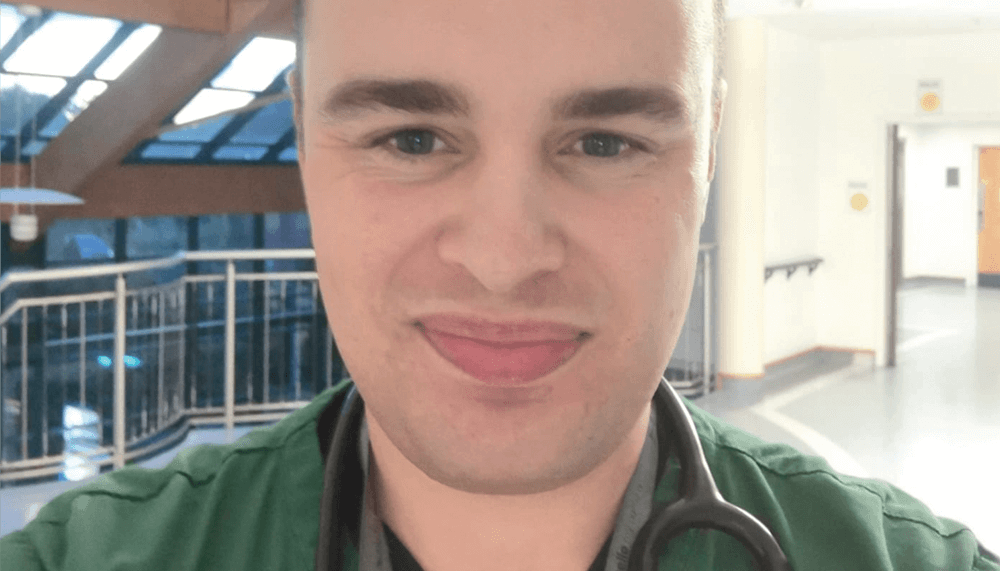
As with other professions, ophthalmologists are not all equal in skill and performance. I believe that an accumulation of skills and qualities ultimately defines an ophthalmologist as great rather than good. Therefore, identifying which attributes need to be boosted – and how – can take an ophthalmologist to the next level. And in a profession as busy as ophthalmology, with an estimated 400,000 cataract operations taking place annually, improving the quality of your performance is not simply desirable, it’s necessary (1).
Essential qualities of a good ophthalmologist include visuospatial awareness, manual dexterity, and a comprehensive understanding of biomechanical concepts (2). But great ophthalmologists have skills and traits that allow them to perform using more than technical skills alone; human factor research indicates that non-technical skills for surgeons (NOTSS) – including communication, teamwork, decision-making, leadership, and situational awareness – are crucial for improving surgical team performance (3). These skills do not come naturally to us all, but they can be developed and then honed with appropriate training. I’d go as far as saying that, without these non-technical skills, ophthalmic surgeons are unable to reach their full potential – and that’s why such training is embedded into the Royal College of Ophthalmologists’ surgical curriculum (4).
Communication – art and science
The doctor–patient relationship isn’t what it once was – with a seismic shift from a paternalistic model to a patient-centered one (5). What does that mean for all doctors? High-quality communication is essential. Here, actively listening to patient’s concerns and expectations and appropriately outlining concepts and options are key ways of demonstrating respect to patients – whilst also improving satisfaction and safety (6). Effective communication spans both verbal and non-verbal means, and also has a decisive role in the interaction between team members. Clearly positioning yourself as the head of the team, and solidifying verbal commands with clarity are ways in which you can avoid miscommunication – and adverse events (7).
Real team players
Interdisciplinary practice and teamwork are the modern mantras in the effective management of ophthalmology – and that’s only been further highlighted during the COVID-19 pandemic. More flexibility in how patients are triaged and a greater use of virtual clinics (especially in postoperative reviews) has increased the number of consultations within the specialty (8).
Individual behaviors and the ability to work as part of an efficient team influence the resulting performance (9) – all ophthalmic surgeons should be aware of that truth and great surgeons must embrace it. Meredith Belbin’s comprehensive study of the elements of a successful team also applies to ophthalmology. Belbin describes nine team roles necessary for a group to perform at its peak (shown in Table 1), while recognizing that individuals may exhibit behavioral traits from one or more of those roles. Each role has “a tendency to behave, contribute and interrelate with others in a particular way,” and is linked to personality and not necessarily to one’s profession. The technical role of an ophthalmic surgeon could be regarded in Belbin’s team roles as “implementer” – essential good at transforming service delivery models into practical actions. Successful surgical teams also tend to have members with behaviors that fulfill multiple roles – both concentrating the team’s abilities while preventing dilution of those abilities in the mass of the team. Belbin’s team roles also highlight an important concept: Nobody is perfect but a group can be. Ophthalmic surgical teams require a range of individuals with clearly defined roles, specific skill sets, and, of course, the ability to effectively work as part of the team!
Table 1. Belbin’s team roles (9).
Make or break
Great surgeons are decisive – but, as surgeon Atul Gawande said (1), “The core predicament of medicine is uncertainty.” Fortunately, ophthalmologists are not alone in the surgical decision-making process. In addition to consulting NICE management guidelines, ophthalmologists use contributions from the multidisciplinary surgical subspecialty teams for effective patient-specific management plans – helping decision making in all cases, from complex isolated injuries that require surgical subspecialists to complex polytrauma patients. Advice and input from members of the team are invaluable, but ultimately the decision rests with the surgeon in deciding which treatment is best suited to the patient in question. Great surgeons are able to analyze, ask for advice when required, and make effective decisions to achieve good clinical quality care outcomes and optimize patient safety.

O Captain! My captain!
Leading by example is a worthy trait in any field. And great ophthalmologists are able to motivate others to achieve high standards of care by conducting themselves with integrity while using high-quality, evidence-based medicine; for example, The Royal College of Ophthalmologists’ Standards for cataract surgery (11). The ability to optimistically relish a challenge is an important characteristic for surgeons who want to be great leaders – Holman describes this as being a winner rather than a whiner (12). Like enthusiasm, optimism is contagious in the surgical environment.
As a side note, teaching medical students provides an excellent opportunity for ophthalmologists to build their leadership skills, whilst inspiring the next generation.
Unaware beware
Situational awareness – a term first coined by the aviation industry – is, in the context of ophthalmology, all about having an accurate perception of not only the surgical environment but also your impact on others, including any emotional impact (13). Great ophthalmologists convey time-critical information to team members to accomplish a shared situational awareness. The ability of understanding the scope of one’s surgical abilities- enables weaknesses to be managed and strengths refined. Everyone acknowledges that ophthalmic surgery can be stressful areas of work and therefore clinicians need peer-support and supervision in training. The ability to provide social support in the team environment has been identified as a crucial stress-reducing factor for avoiding burnout and fatigue.
Here’s to greatness!
Ophthalmologists work in a highly charged environment with a wide spectrum of patients. They are required to be decisive and yet dynamic in their approach to both clinical and surgical problems. Simultaneously, they must also promote a positive workplace for a multidisciplinary team. They must be inspirational leaders who motivate others to work beyond the call of duty to improve patient safety and quality care outcomes.
The path towards greatness is actually a continuous journey of self-improvement – but it is also the surest route to a satisfying and successful career in ophthalmology.
My Top tips and examples of great surgeons lists
- Situational awareness: Recognize the limitations of your knowledge and skills, it is better to say that you don’t know something and ask for advice then to plough ahead unknowingly. Especially as it may be hard to undo an operational action once performed!
- Communication: Listen to how the patient explains their symptoms and go into detail – “what do you mean when you say you see double vision?”
- Teamwork: Pre and post-surgical team briefings can provide an excellent opportunity for everyone to have their concerns raised.
- Vitreoretinal surgical patients are often complex and can benefit from tailored information regarding their operation, rather than offering generic information.
- Great Surgeon attribute: Tailoring patient information to the patient in contrast to inaccurate patient information.
- Stick to one strength of eye drop steroid for your career, this will enable you to have an understanding of response.
- Examining the fundus is never a bad idea.
- Always offer time for patients to answer questions.
- Great surgeon leadership quality: Measure what you value, don’t value what you measure.
References
- Royal College of Ophthalmologists, “Ophthalmic services guidance,” Available at: https://bit.ly/3IWhacG
- MA Mahr, “The Eyesi Ophthalmic Surgical Simulator,” Cataract & Refractive Surgery Today (2008). Available at: https://bit.ly/3pPNTYs
- RA Agha, AJ Fowler, N Sevdalis, "The role of non-technical skills in surgery," Ann Med Surg, 4, 422 (2015). PMID: 26904193.
- RW Barnes, "Surgical handicraft: teaching and learning surgical skills," Am J Surg, 153, 422 (1987). PMID: 3578661.
- K Granger, "Healthcare staff must properly introduce themselves to patients," BMJ, 347, f5833 (2013). PMID: 24089426.
- JF Ha, N Longnecker, "Doctor-patient communication: a review," Ochsner J, 10, 38 (2010). PMID: 21603354.
- MA Makary et al., "Operating room teamwork among physicians and nurses: teamwork in the eye of the beholder," J Am Coll Surg, 202, 746 (2006). PMID: 16648014.
- CL Kilduff et al., “Creating the Moorfields’ virtual eye casualty: video consultations to provide emergency teleophthalmology care during and beyond the COVID-19 pandemic,” BMJ Health Care Inform, 27, e100179 (2020). PMID: 32796085.
- RM Belbin, Team roles at work, 2nd edition, Routledge: 2010.
- JT Paige, "Surgical team training: promoting high reliability with nontechnical skills," Surg Clin North Am, 90, 569 (2010). PMID: 20497827.
- A Gawande, “Complications: A surgeon's notes on an imperfect science,” Profile: 2002.
- L Holman, "Eleven lessons in self-leadership," 30, Lexington Wyncomb: 1995.
- M Ferrara et al., “Reshaping ophthalmology training after COVID-19 pandemic,” Eye, 34, 2089 (2020). PMID: 32612174.
